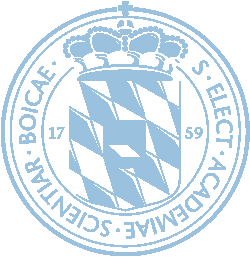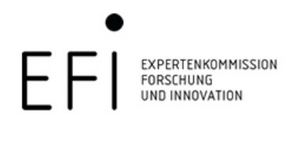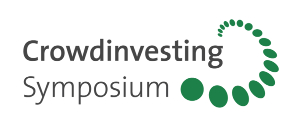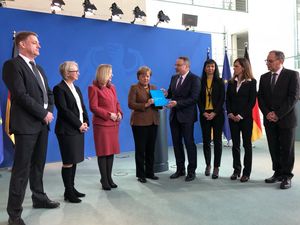Participating institutions in the establishment of the BIT are: the Max Planck Institute for Innovation and Competition, the TU Munich, LMU Munich, the Bavarian School of Public Policy, the Akademie für Politische Bildung (Scholarship - Education - Public Services), the ISF (Institute for Social Science Research), the JMU (Julius-Maximilians-Universität Würzburg), the FAU (Friedrich-Alexander-Universität Erlangen-Nürnberg), and the University of Passau. The network is continuously being expanded with new innovative research partners.
Dietmar Harhoff, Director at the Max Planck Institute for Innovation and Competition, is a member of the founding board of directors of the MCIR.
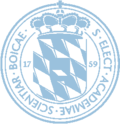
Establishment of the Bavarian Research Institute for Digital Transformation
On 26 June 2018, the Bavarian State Government has decided to establish the Bavarian Research Institute for Digital Transformation (BIT) which is to study the impact of digitalization on all aspects of life. Under the auspices of the Bavarian Academy of Sciences and Humanities, it will bring together the most important research groups in Bavaria, act as a think tank, and engage with the general public.

Dietmar Harhoff reappointed to the Commission of Experts for Research an Innovation (EFI)
Prof. Dietmar Harhoff, Director at the Max Planck Institute for Innovation, has been reappointed to the Commission of Experts for Research an Innovation (EFI).
The Commission of Experts for Research and Innovation (Expertenkommission Forschung und Innovation - EFI) provides scientific advice to the German Federal Government and periodically delivers reports on research, innovation and technological productivity in Germany. A key task is to provide a comprehensive analysis of the strengths and weaknesses of the German innovation system in an international comparison. Furthermore, Germany's perspectives as a location for research and innovation are evaluated on the basis of the latest research findings. EFI presents proposals for national research and innovation policy.
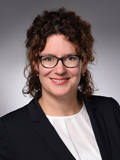
Press release: Max Planck Institute for Innovation and Competition hosting new “Journalist in Residence”
Michaela Hutterer to investigate the significance of net neutrality in economic and competition-law terms.

Program available - 6th Crowdinvesting Symposium “Blockchain and Initial Coin Offerings”
On Friday, 20 July 2018, the 6th Crowdinvesting Symposium "Blockchain and Initial Coin Offerings" takes place at the Max Planck Institute for Innovation and Competition.
The annual event was initiated by Prof. Dr. Lars Klöhn, Humboldt University Berlin, and Prof. Dr. Lars Hornuf, University of Bremen. It was first organized in February 2013 at the Ludwig Maximilians University (LMU) Munich.
Since April 2016, Prof. Dr. Lars Hornuf is Affiliated Research Fellow at the Max Planck Institute for Innovation and Competition within the scope of the research project "Crowdinvesting in Germany, England and the USA: Regulatory Perspectives and Welfare Implications of a New Financing Scheme" which is funded by the DFG (Deutsche Forschungsgemeinschaft).
The symposium offers academics and practitioners a platform to exchange ideas about the latest developments in this field as well as for networking. Moreover, it is a forum for the information of legislators on the European and national level on a scientific basis and with regard to new legislative proposals or legal reform projects. For this purposes, each year a priority topic is defined which covers current issues of crowdinvesting from an economic and legal perspective. The findings of the symposia are published in high-ranking scientific journals.
See Program
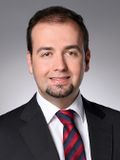
Marco Botta awarded habilitation in economic law
The Italian Ministry of Education and Research has awarded Marco Botta, Senior Research Fellow at the Max Planck Institute for Innovation and Competition, a habilitation (qualification for a professorship) in the field of economic law.
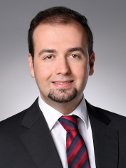
Link to personal page of Marco Botta

Commission of Experts for Research and Innovation (EFI) presents Annual Report 2018 on Research, Innovation and Technological Performance in Germany to German Chancellor Merkel
On February 28, 2018, the Commission of Experts for Research and Innovation chaired by Prof. Dietmar Harhoff, Ph.D., Director at the Max Planck Institute for Innovation, has presented the eleventh report on research, innovation and technological performance in Germany to the German Chancellor Angela Merkel.
The Commission of Experts for Research and Innovation (Expertenkommission Forschung und Innovation - EFI) provides scientific advice to the German Federal Government and periodically delivers reports on research, innovation and technological productivity in Germany. A key task is to provide a comprehensive analysis of the strengths and weaknesses of the German innovation system in an international comparison. Furthermore, Germany's perspectives as a location for research and innovation are evaluated on the basis of the latest research findings. EFI presents proposals for national research and innovation policy.
Press release: Research on Internet user behavior: Clear rules could prevent copyright infringements
In a recent study on German consumers’ use of copyright-protected content on the internet, the Max Planck Institute for Innovation and Competition reveals surprising insights and calls on policy-makers and businesses to act.

Call for Papers - 6th Crowdinvesting Symposium “Blockchain and Initial Coin Offerings”
On Friday, 20 July 2018, the 6th Crowdinvesting Symposium "Blockchain and Initial Coin Offerings" takes place at the Max Planck Institute for Innovation and Competition.
The annual event was initiated by Prof. Dr. Lars Klöhn, Humboldt University Berlin, and Prof. Dr. Lars Hornuf, University of Bremen. It was first organized in February 2013 at the Ludwig Maximilians University (LMU) Munich.
Since April 2016, Prof. Dr. Lars Hornuf is Affiliated Research Fellow at the Max Planck Institute for Innovation and Competition within the scope of the research project "Crowdinvesting in Germany, England and the USA: Regulatory Perspectives and Welfare Implications of a New Financing Scheme" which is funded by the DFG (Deutsche Forschungsgemeinschaft).
The symposium offers academics and practitioners a platform to exchange ideas about the latest developments in this field as well as for networking. Moreover, it is a forum for the information of legislators on the European and national level on a scientific basis and with regard to new legislative proposals or legal reform projects. For this purposes, each year a priority topic is defined which covers current issues of crowdinvesting from an economic and legal perspective. The findings of the symposia are published in high-ranking scientific journals.
See Call for Papers

Press release: Mortal or Machine? Prizes for developers of automatic bot-recognition systems
The winners of the Munich Bot Challenge were awarded prizes at the Bavarian Academy of Sciences in the Munich Residenz. The award-winning teams developed new methods to quickly detect and block opinion-generating machines, or “social bots”, on the Internet.

Call for Papers - Munich Summer Institute 2018
Researchers who would like to present a paper are invited to submit it online until February 15, 2018 (see below).
From June 4 to 6, 2018, the Center for Law & Economics at ETH Zurich, the Chair for Technology and Innovation Management at TUM, the Institute for Strategy, Technology and Organization at LMU Munich and the Max Planck Institute for Innovation and Competition will jointly organize the third Munich Summer Institute.
The Summer Institute will focus on three areas:
- Digitization, Strategy and Organization
(chairs: Jörg Claussen and Tobias Kretschmer), - Innovation and Entrepreneurship
(chairs: Dietmar Harhoff and Joachim Henkel), and - Law & Economics of Intellectual Property and Innovation
(chair: Stefan Bechtold).
The goal of the Munich Summer Institute is to stimulate a rigorous in-depth discussion of a select number of research papers and to strengthen the interdisciplinary international research community in these areas. Researchers in economics, law, management and related fields at all stages of their career (from Ph.D. students to full professors) may attend the Munich Summer Institute as presenters in a plenary or a poster session, as discussants or as attendants. The Munich Summer Institute will feature three keynote lectures, 18 plenary presentations and a daily poster session (including a poster slam). Paper presentations will be grouped by topics, not discipline or method. The Munich Summer Institute will be held at the Bavarian Academy of Sciences and Humanities in the heart of Munich. Participation is by invitation only. The organizers will fund travel and hotel expenses for all plenary speakers and hotel expenses for all poster presenters and invited discussants.
Keynote speakers are:
- Ashish Arora (Duke University)
- Luis Cabral (New York University)
- Joel Waldfogel (University of Minnesota)
Paper submission procedure
Researchers who would like to present a paper are invited to submit their paper online until February 15, 2018, at the MSI website. The Munich Summer Institute only considers papers which have not been published or accepted for publication at the date of submission. Paper selections will be announced in March 2018. The program of the Munich Summer Institute will be available on April 1, 2018. Final papers will be made available to conference participants on a protected website, and are due on May 1, 2018. Researchers who would like to attend the Munich Summer Institute without giving a presentation should contact one of the organizers by May 1, 2018.
Further information
Any questions concerning the Munich Summer Institute should be directed to Stefan Bechtold, Jörg Claussen, Dietmar Harhoff, Joachim Henkel or Tobias Kretschmer.

